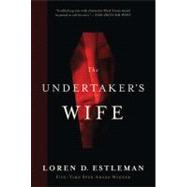
Note: Supplemental materials are not guaranteed with Rental or Used book purchases.
Purchase Benefits
What is included with this book?
Loren D. Estleman, the author of more than fifty books, is admired for both his novels of the West and his crime novels. A nominee for the National Book Award, he has won five Spur Awards. Estleman lives in Michigan with his wife, author Deborah Morgan.
The New copy of this book will include any supplemental materials advertised. Please check the title of the book to determine if it should include any access cards, study guides, lab manuals, CDs, etc.
The Used, Rental and eBook copies of this book are not guaranteed to include any supplemental materials. Typically, only the book itself is included. This is true even if the title states it includes any access cards, study guides, lab manuals, CDs, etc.